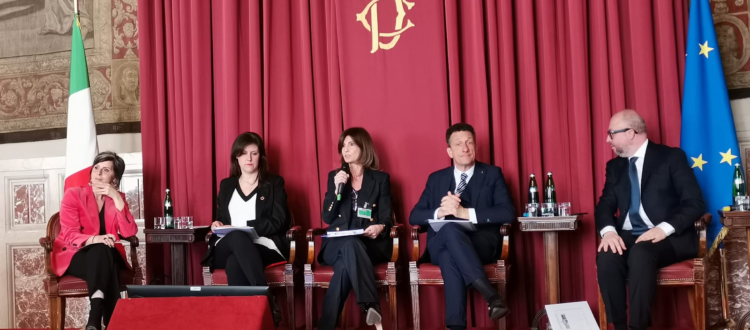THE NEW PNIEC WILL HAVE TO RISE TO THE CHALLENGE
On several occasions, this association has reiterated the need for an improved update of the National Integrated Energy and Climate Plan, the PNIEC, our national planning tool on energy and climate policies for the 2020-2030 period, not least during the meeting with the Minister Pichetto Fratin at COP27 a few months ago.
The current plan dates to 2019. It predates the presentation of the European Green Deal on climate and its emission reduction targets, consequently, are not in line with the minimum (-55% at the EU level) required by the European Commission. The PNIEC, as a planning document, was indicated as already outdated by the facts in the drafting of what would become the NRP in 2020.
The European Commission is now asking all member states to submit an updated national plan by 30 June 2023. The government is therefore working to present a revised version of the NRP, on which, however, no substantial information has been circulated so far.
The think tank ECCO, in a recent technical report, had pointed out some of the main shortcomings of the previous PNIEC and indicated possible ways forward for its complete revision, starting first of all by abandoning the purely energy-centred approach of the previous document to arrive – in the hopes – at a broader planning vision, which would bring together climate, economic and social aspects.
On 21 March 2023, ECCO itself, together with the Vice-President of the Chamber of Deputies and former Minister of the Environment, Sergio Costa, organised a discussion at the Chamber of Deputies in the presence of industry players and representatives of the main political forces, in which ICN participated. On that occasion, Federico Boschi, head of the Energy Department of the Ministry of the Environment and Energy Security, admitted that the Ministry is ‘behind schedule’ in drafting the new plan, a delay motivated by a series of IT problems that have occurred in recent months in addition to further technical delays ‘inherited’ from the previous government. Paradoxically, in Boschi’s view, this delay does, however, leave more room for civil society to engage in an open dialogue with the ministry and politics given the June deadline, which will in any case be followed by meetings and consultations. However, it remains to be seen which actors will be involved, in addition to those related to the energy sector.
Compared to the current plan, which Vice-President Costa described as ‘almost archaeology’ given the sudden evolution of the political, geopolitical and energy scenario from 2019 to today, the new PNIEC will have to start from a different approach, first political, than technical. The exclusively engineering reading of national energy trajectories, which must be aligned with the European commitments, should leave room for a broader social and macroeconomic reading, within the limits of the limited time available to the MASE for this important revision.
New forms and possibilities for financing the green investments necessary for the transition should be integrated into the PNIEC, in line with the broader rethinking underway internationally on climate finance and with the evolution of the Italian and European financial scenario. Appropriate evaluations should be made not only on the costs of transition but also on the costs of continuing ‘locked-in’ investments, i.e. not responding to transition trajectories, which are assumed to aggravate the already significant demand for financial support from the business world. At the same time, ECCO points out, there is a major mismatch between national climate and energy policies and those of cities, which should instead be driving the transition in the presence of significant public resources.
Further shortcomings of the current PNIEC towards its revision were also underlined by Gilberto Dialuce, President of ENEA, who recalled the total absence of the theme of digitalisation, central to both European policies and the PNRR, as well as the opportunity represented by Renewable Energy Communities concerning the transformation of the national energy scenario, a theme still in the early stages of development in 2019 and today at the centre of an important and positive acceleration.
In the ensuing political debate between representatives of the parliamentary groups (which was quickly deserted by the representatives of the three main government parties due to other commitments), some worrying positions emerged from some government political forces (first and foremost Forza Italia) with respect not only to the revision of the plan but even concerning the feasibility and necessity of maintaining the general objectives of the Paris Agreement, perceived as conflicting with the economic needs of some productive and industrial sectors.
The work of the government and the MASE will come to a head in the coming weeks. It will be important for the Government, the Ministry, but also the main parliamentary groups within their sphere of competence, to maintain an open dialogue with civil society organisations and research centres to steer the drafting of the new plan in the direction of a broader vision of society, on pain of missing a historic opportunity in defining our path towards 2030 and decarbonisation by 2050. The new PNIEC will indeed have to rise to the challenge.
By Jacopo Bencini, Policy Advisor and UNFCCC contact point

